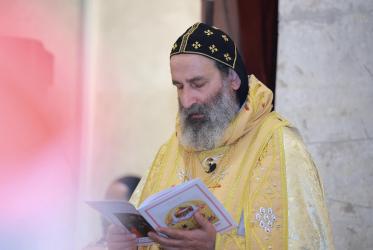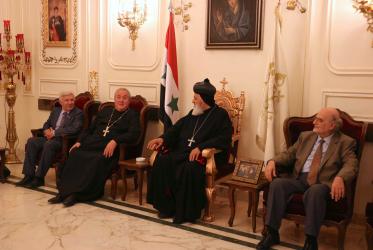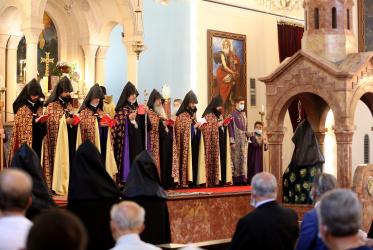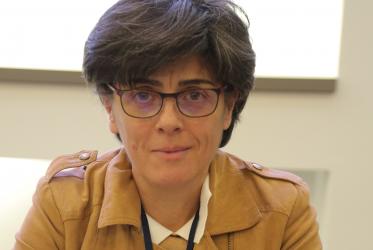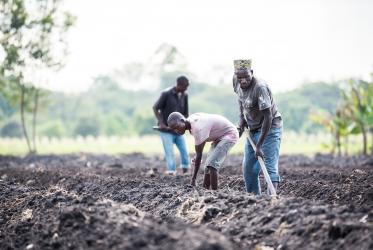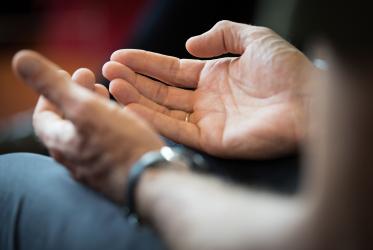Displaying 1 - 20 of 28
Hope prevails in times of crisis in Lebanon
14 September 2020
WCC regrets USA withdrawal from UN relief for Palestinian refugees
03 September 2018
“Love will find a way”
23 August 2018
WCC Executive Committee to convene in Amman
16 November 2017
WCC general secretary reflects on peace in Palestine and Israel
20 September 2016
Pilgrimage and youth
28 June 2016
WCC Executive Committee works toward a future of peace and justice
19 November 2015


